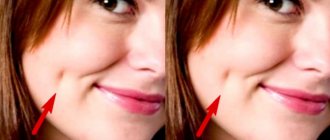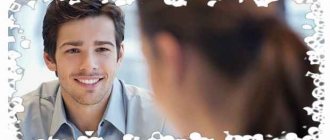It’s not for nothing that there is an expression that a person’s eyes never lie. It is in this article that I will tell you how you can easily read a person’s character just by looking at his eyes. Or rather, by looking at the shape of the eyes, their color and location.
This method of determining character traits is called physiognomy. It gives us an idea of a person by his facial features.
This method is based on statistical analysis, which can give us the information we need very accurately and quickly.
Personally, I was very interested in this method, so it’s time to share the basic knowledge of physiognomy with you.
To make it easier to understand, look carefully at the pictures.
Character by eye size.
Big eyes.
People with big eyes usually have leadership qualities. Basically, these people are strong-willed, courageous and able to make decisions quickly.
Also, big-eyed people: optimistic, good-natured and open-minded. Usually these are creative individuals, as well as with a certain sense of style.
Big-eyed people are also characterized by excessive naivety and emotionality.
Small eyes.
People with this eye size are often withdrawn, gloomy, as well as stubborn and self-righteous. Also, such people are very constant, punctual and radiate calm.
Nature itself endowed these people with a stable psyche, observation and integrity.
Very often such individuals are jealous.
The Function of Gaze: Cultural and Historical Significance in Society
The manner of looking is of great importance during communication. But representatives of different cultures have their own etiquette regarding the permissibility and appropriateness of direct eye contact. Thus, in Western European countries it is customary to look long and intently, expressing trust and interest in the conversation. A similar tradition is common in Russia and other CIS countries.
Residents of the Far East regard an attempt to make eye contact as disrespect and even a threat. This is especially pronounced in Japan: during a conversation, the Japanese specifically look to the side so as not to accidentally look at the interlocutor. When studying the culture of views, one should take into account national characteristics, otherwise one can misjudge intentions and provoke a quarrel.
Character by eye shape.
Round almond-shaped eyes.
Such eyes say that their owner has an open soul. This means that this person is able to accept the world as imperfect and look at everything optimistically.
Large elongated eyes.
Owners of such eyes like to set grandiose goals for themselves and, more importantly, they are the ones who know how to achieve what they really want.
Protruding eyes.
People with this eye shape are most often very honest, open and talkative people. Also, such people “like to live in grand style.” And situations where something doesn’t work out for them are perceived very emotionally.
Sunken eyes.
People with this eye shape are most often avid realists. They are calm, thoughtful, reasonable and perceive new information well.
Such people are not prone to recklessness and spontaneity. But they do an excellent job of managing any financial affairs.
Elongated eyes (corners up).
This eye shape speaks of the sophistication of their owner.
Moreover, if their owner is a man, then he is decisive.
And if the owner is a woman, then she is not rational.
Sight.
Not good.
I can see in my eyes there will be war! Eye to eye, point blank. The mood is decisive, a challenge to an argument, a conflict is possible, a threat or an ultimatum is possible. The person is proud, dominant and treats you as a subordinate. Perhaps you are perceived as an outsider or you have broken some rules and they have the right to put you in your place. If, with such a look, a person restrained himself in public, then he will express his opinion or even resort to action afterwards. Therefore, if you do not want conflict, try to build bridges, establish good contact, noticing a belligerent attitude against yourself. It can also mean that you are being tested for strength. They are trying to subjugate you to your will, bend you to other stereotypes and show who is in charge here. This happens when talking with superiors, law enforcement agencies and a lawbreaker. If you show courage, determination and openness of intentions, then you will notice that people will look at you kinder. If you respond with the same stern and decisive look, then you have decided to accept the challenge.
Friend.
I can see it in your eyes, friend!
A businesslike look, open to new information. The interlocutor has nothing to hide and is attentive to your sincerity. Intuitively seeks your open response gaze as a reason to continue to be open. Especially during an interview, honest workers look at the boss like this during a casting. With their open gaze they want to show their honesty and want to catch the kind glance of their boss, they want to see his approval.
Respect.
I can see it in his eyes - he respects!!! A glance at the lips speaks of lively communication and a friendly attitude. Perhaps deep respect, that is, a person hangs on every word. This is often seen during a conversation between a boss and a subordinate, who, by the way, have good human relations. The subordinate tries to catch the word of the boss in order to complete the work more accurately, do something pleasant and maintain good relations. This can be seen when a real authority says something, tries to convey it to the audience, and the listeners gratefully and devotedly receive the instructions.
Sympathy.
I can see it in your eyes - I like you! From eye level and below to the chest and below. This often indicates intimate interest and affection. Men are more open about such views. A person reveals his cards often intuitively and experiences embarrassment when his gaze is intercepted and exposed. They often say in the eyes I can see who likes whom and this is often to the point. In a family, such a look serves as a hint of a desire for intimacy, which is legal. However, between people who are not legally married, this is perceived as flirting and can lead to real problems and misunderstandings.
Fear.
I can see it in his eyes - he’s afraid. A look that avoids meeting. An attitude of humility, submission, fear. Views of subordinates in relation to superiors. This fear is not panic, but constant, established and accepted. It can be feigned in order to mislead and to milk one’s goals through false humility. However, they are often afraid of those who really have leverage and with whom it is better not to argue.
Attention.
I can see in his eyes that he is completely attentive. The upper eyelids are raised, the gaze is straight - “googling”. This means increased attention to your person. It remains to understand this attention negatively or positively. Look at facial expressions and gestures, listen to words and hints, look at the pupils. If the attention is positive, it means that the person is simply fascinated by you, fascinated, admired by you. Ready to imitate. If the attention is negative, then the person seems to be trying to open his eyes wider to accommodate more information about you, so that later he can use it against you. Again, through other manipulations, he can hide his motives. Be careful.
Wish.
I can see in his eyes what he wants from me. The gaze is frequent, almost demanding, often intent. It becomes clear that the person wants to say, show or convey something and is trying to establish eye contact. A possible variant of imitation with this view is that a person tries to study behavior in advance or for other reasons. Such a person catches your gestures, facial expressions and tries to draw conclusions for himself. This is easy to notice when in a crowd one person tries to attract the attention of someone; when one, with a large number of eye contacts, constantly looks at someone, is distracted from the immediate interlocutors. It may be trying to read you and can't do it fast enough.
Interest.
I see interest in his eyes. This is an obvious wink, raising an eyebrow, eyebrows. The person is trying to agree with you on something, to be on the same team with you, on the same wavelength, in the same connection, etc. He expresses sympathy and even some intimacy in your relationship. He wants to show that you and him are for one thing, unlike others, that you have your own secret. However, in some cultures, winking is not accepted and is perceived as disrespect, an insult to dignity and leads to resentment.
Smile.
I can see it in his eyes - he is smiling. Look into the eyes, eyebrows raised slightly defiantly, the corners of the eyes slightly raised. It remains to understand what kind of smile this is - for good or not. Everyone knows the conclusions and evidence of scientists on how to distinguish a real smile from a fake one. With a fake, fake, fake smile, the corners of the mouth rise, and with a real smile, the outer corners of the eyes also rise. This was also noted by the French neuroanatomist Duchenne de Bologne in the mid-19th century. If a person is able to regulate the muscles of the mouth consciously, then the muscles of the eyes act instinctively, according to the orders of reactions in the brain and therefore cannot be done. Therefore, you see laughing eyes, and not just a smile on the mouth, then this is sincere and for good. But if only the mouth smiles and the eyes are “silent,” then the person is insincere and often professionals of deception mislead with such a smile with their friendliness, having purely mercantile goals. Or a person laughs through tears, he has no time to laugh at all, but on the contrary, he needs help.
Surprise.
I can see it in your eyes - surprise! The eyes are wide open, most of the white of the eye is visible; the eyebrows are drawn apart and moved apart; mouth slightly open. When a person is surprised in a positive sense and taken aback in a negative sense, facial expressions and gestures for at least a few seconds will show everything. At the emotional level, the one who was exposed will show indignation; his eyes will not show any positivity. And vice versa, if a person finds the surprise pleasant, his gaze reaction and facial expressions will be positive, perhaps feigned, but positive.
Shock.
I can see it in his eyes - he’s shocked. Eyes are raised up to the ceiling or sky.
Shock and surprise are different emotional states. And it is also expressed in different ways. Remember your facial expressions when shocked and surprised!? When a person is shocked by unexpected news, positive or negative, he seems to be looking for an answer from above why this happened or thanking someone on high for a blessing. A person may raise his hands up, clench his fists out of frustration, resentment, or vice versa out of joy and delight. Gestures are broad and sweeping. Speech is loud. Negative shock is visible when hearing the news of someone’s death, about an accident with someone, about being fired from a job, about a sudden diagnosis. A positive shock at the news of a long-awaited fulfillment of a desire, when entering a job, to study, when unexpected help appears in a seeming dead end.
Fright.
I can see it in my eyes - I’m scared! The gaze is open, as if in surprise, but the eyelids are tense in anticipation of danger; the eyebrows are raised, but knitted together, the lips are narrow, compressed like stripes. The gaze may be fixed and fixed because the person may be trying to catch changes in the offender's mood. By other objective signs, fear is easy to recognize if it is not hidden. A person trembles, shrinks, goes into the shadows, his hands become cold, etc. If a person tries to hide fear, then one can understand fear by the tense eyes that literally do not look away from the source of aggression. This often happens when, during a conversation with a couple, something unpleasant for them comes up and at this moment he or she intensely and incessantly looks and listens to what the other is saying. The one being looked at apparently has a strong opinion on this matter and the other has been subjected to verbal or physical violence more than once when disagreeing. Also, children in the campaign are guided by the aggressor when it comes to moments that were already acute, but which children are trying to hide from their parents.
Hatred.
I can see it in his eyes - he hates him. The eyes are squinted, narrowed and almost invisible; gaze point blank, without blinking, eyelids tense. They want to intimidate you and perhaps the threat is real. The eyes don’t lie and it’s better to resolve this situation quickly. This is what tyrant bosses and aggressors often do.
Doubts.
I see it in my eyes - I doubt it. The eyes are narrowed or, on the contrary, slightly open and directed at an indefinite point, the eyebrows are slightly frowned or, on the contrary, parted but slightly, as if from the surprise of a situation of choice for which he is not prepared. Facial expressions: a person can scratch the back of his head, close his hands, closing himself off to make a difficult decision for him, and there will be a slight sweating from excitement. This often happens when a person is pointed out to a contradiction in his words and he tries to create logic in his judgments; when there is no trust between the interlocutors and the conversation is serious and therefore has serious consequences. Also when a person is offered responsibility for which he is not ready. For example, if a girl or guy is not ready for marriage, but receives an offer, then this is the reaction. Or when a young man finds out that he will become a father, he is often confused and looks into nowhere, trying, of course, not to show this to others.
Embarrassment.
I can see it in his eyes that he is embarrassed. The upper eyelid is slightly lowered, covering the eyeball, a secret glance, short-lived and imperceptible; head down. This is a sign of emotional submission, although pleasant for the subordinate. This can be seen in a conversation between a teacher and a student on good terms. The student is even embarrassed to look at the teacher out of great respect. These eyes are sometimes used to perceive a woman's flirting. A woman does not openly view the subject of interest like a man, but rather hides it and behaves like a child. If at school a male teacher gives advice to a female student, it is precisely because of the gender difference, and not out of respect, that the female student does not look the teacher directly in the eye.
Shame.
I can see it in your eyes - shame on you, traitor! The gaze avoids the oncoming person, often at the feet, at other objects, the eyebrows are slightly frowned in order to hide the gaze, redness of the face, constrained movements, the person ignores the topic and questions that are uncomfortable for him. A striking example is delinquent children. Without literal evidence, just one glance, the parent understands that the child has done something wrong. This can be seen when the spouse tries to hide the betrayal, and the other sees everything in his eyes. The spouse has no evidence, but sees that the look is treacherous, not open, fearful and, well, bashful. Shame and guilt at least somehow show regret about what they have done and provide a reason for the innocent party to soften up. This can be seen with the betrayal of a friend and the unpleasant realization of this, with forced communication, although intrigues are being built behind one’s back. In business matters, people are often asked to look people in the eye, and betrayal is clearly visible.
Not guilty.
I can see it in his eyes - he’s innocent! The gaze is direct, unwavering, the eyes are open wide, the eyelids are strained from trying to prove his innocence. The person is trying to discern whether they believe him or not and therefore looks steadily and appraisingly. Gestures are open, palms inside out, shoulders straightened. The tone of his voice is raised out of a desire to hear his evidence of innocence. All movements are aimed at the one to whom they want to prove innocence. Although scenes of jealousy are often hidden from the eyes of strangers, there are situations when the husband publicly tries to prove to his wife that he did not look at anyone but her. The husband spreads his hands, looks broadly at his wife and speaks loudly about his love for her. Perhaps he did something reprehensible in fact, but obviously not on purpose. Or when the husband asks about the money spent, the wife, looking wide, wants to show that she does not understand where the money goes. Most likely, she doesn’t know how to save, but she doesn’t do it on purpose. There are, again, skilled deceivers who will convince you of their innocence even when caught in the act of a crime. Be careful.
Excitement.
I can see it in his eyes - he’s worried! Here we note frequent blinking as the main sign. A darting look, asking for help. Movements are nervous, palms may become sweaty, and cannot sit still. It remains to find out the cause of the excitement. Again, positive or negative. If in front of you is a deceiver, an enemy, then he is trying to hide his eyes from you by blinking frequently, trying to avoid meeting gazes so that you do not read his eyes. This is especially pronounced when a loved one has plans against you and is worried because you know him too well. Before cheating, the spouse may worry and not find a place for himself. Of course, this can be well veiled. Positive excitement is often a anticipation of something very good, long-awaited, good news. For example, pre-wedding preparations are pure excitement! Finding out what gender the child will be is a real excitement for some. A man who is waiting for a girl’s response to his marriage proposal is worried and finds no place for himself. Men in love often blink when looking at their beloved.
Character in the corners of the eyes.
Eye corners pointing upward
This feature of a person tells us that the owner of raised corners is well trained and has a positive mindset.
Also, such people believe in themselves, never give up and almost always achieve their goals.
If the owner of such corners also has medium-sized eyes, then we can conclude that he is an excellent listener.
The corners of the eyes are directed downwards.
Such people most often act absolutely selflessly; they are good-natured towards everyone. Also, such corners indicate that a person is inclined to care about others.
These are calm, observant people, but more often they have a degree of pessimism.
Gaze frequency and duration: how to understand signals
The duration of looking at a partner within European culture has different meanings, depending on the nature of communication. The following types of views are distinguished:
- Social - medium duration, aimed at the eye or mouth area.
- Business - direct, long-lasting, expresses the desire to reach an agreement.
- Intimate - intermittent for women, long-lasting for men. Used to attract the attention of an interested person.
A direct gaze directed downwards at a partner is a signal of threat, a warning of an attack. This is how dominant individuals look, seeking to assert their position. In friendly and business communication, a challenging gaze should be avoided so as not to accidentally provoke aggression.
Character based on the location of the eyes.
The “golden mean” is the gap between the eyes = 1 eye.
This arrangement of the eyes indicates that a person is able to build relationships with any person and society as a whole.
Close-set eyes.
A person with such an arrangement of eyes is distinguished by its narrow focus. He devotes all his strength to one direction and achieves success in this way.
This also indicates that the person does not have a strong character. He is prone to parental influence and control. For such a person, the opinions of others are important.
Far-set eyes.
This arrangement of the eyes indicates that you have a strong personality in front of you, who most often wants to control, but not obey. Because of this, even within the family circle they have a cool relationship.
What does the size of the pupils indicate: what is the interlocutor hiding?
During a conversation, the size of the pupils may change dramatically. This is due to the emotional attitude towards the interlocutor or the subject of conversation. Dilated pupils are a sign of strong emotional upsurge: the partner is looking at what he likes. This is how lovers look at the object of their passion or children look at a desired toy. Constricted pupils are a sign of detachment and emotional coldness.
When assessing pupil size, it is important to take into account third-party factors. So, in bright light, the pupils narrow greatly, and in semi-darkness they dilate. Some diseases, for example, increased intracranial pressure, can affect the width of the pupils.
Character by eye color.
Brown.
People with dark brown eyes are considered complex in character. They are determined, temperamental, and sometimes impulsive. Such people are often harsh in their expressions and emotions. Also, brown eye color speaks of a person’s wisdom and his ability to quickly make decisions, relying only on himself.
Brown-eyed people most often do not like monotonous work; they need interest in it. They also need to constantly be fed with new impressions.
As for their personal life, these people are amorous and that is why they often change their partners.
Light brown.
If dark brown ones are more impulsive, then light brown ones are more prudence.
Those with light brown eyes are more vulnerable and reserved people. They are vulnerable and indecisive.
This color also speaks of hard work, diligence... In general, you can always rely on such a person.
Black and brown.
The difference from just brown eyes is that such people have a special magnetism for others. They are full of bold ideas and bring them to the world.
Green eyes.
People with green eyes are soft and very kind, but only as long as it is convenient for them. At the right moment, they know how to make the right decisions, and sometimes they even become cruel (only for the further good).
Such people cope well with leadership positions. Because they have an innate sense of justice and can always find a way out of any situation.
Contrary to many signs, green-eyed people are considered the most sincere. They also know how to listen well and are no less good storytellers.
Blue eyes.
Such people have a calm and moderate character. Often such people look vulnerable and emotional, but most often this is just a cold calculation.
Also, owners of blue eyes often suffer from sudden mood swings. From boundless joy to deep depression it can take just a couple of minutes.
Blue eyes.
Vulnerable, emotional, charismatic people have this eye color. In one word, the very embodiment of romantic nature.
These people are also very unpredictable. It is worth remembering that behind the external vulnerability there is a person: determined, purposeful, and also able to lead other people.
Grey eyes.
People with this eye color often have a mathematical and logical mind. These people are goal-oriented. They always know where and from what situation they can get the most benefit, and also not be afraid of difficult situations.
People with gray eyes are inquisitive, romantic and, oddly enough, also practical.
Most often, energetic and extraordinary individuals are chosen as partners; such people very rarely cheat.
Yellow eyes.
People with yellow eyes are very rare. But I’ll still tell you about them.
Such people, like their eye color, are very unusual. They have well-developed intuition. They also have such character traits as: unpredictability, emotionality, and artistry.
Their main feature is that they always know when a person is insincere with them.
Chameleon eyes.
The name of the eye color speaks for itself. Such people are often not constant. They love to change everything around them, and also often change their hobbies. That is why they rarely finish what they start.
Also, such people are often indecisive and prone to illogical and senseless actions.
The mood of such people is also not constant.
Despite this, such people live an exciting and fulfilling life, with a lot of travel and adventure.
List No. 1
- adventurous
- aggressive
- adequate
- gambling
- greedy
- angelic
- apathetic
- womanish
- babkin
- grandma's
- mutton
- lordly
- daddy
- father
- vigilant
- fluent
- shameless
- fearless
- thoughtless
- soulless
- ruthless
- lifeless
- carefree
- bottomless
- defenseless
- good-natured
- serene
- hopeless
- joyless
- indifferent
- reckless
- insane
- indifferent
- endless
- careless
- restless
- nonsensical
- fearless
- shameless
- shameless
- artless
- insensitive
- mad
- reverent
- grateful
- benevolent
- blissful
- myopic
- lascivious
- wandering
- cheerful
- painful
- sick
- timid
- squeamish
- brutal
- violent
- rebellious
- fast
- bullish
- vampire
- inspired
- thoughtful
- witchy
- fabulous
- stately
- treacherous
- funny
- cheerful
- windy
- mutual
- guilty
- wet
- domineering
- sane
- sudden
- attentive
- coveted
- warlike
- wolfish
- interrogative
- thievish
- inflamed
- enthusiastic
- delighted
- hostile
- hostile-cold
- counter
- corrosive
- expectant
- defiant
- expressive
- arrogant
- lethargic
- squeamish
- heroic
- heroin
- disastrous
- hypnotic
- hypnotistic
- deep
- mocking
- silly
- silly
- angry
- depressing
- Hollywood
- dizzy
- hungry
- proud
- proud
- sorrowful
- hot
- master's
- sinful
- formidable
- rude
- sad
- hussar
- farsighted
- maiden
- girly
- grandfatherly
- duty
- delicate
- demonic
- depressive
- bold
- children's
- wild
- savage
- wild
- long
- Kind
- kindest
- good-natured
- friendly
- confiding
- long-awaited
- annoying
- dramatic
- friendly
- bad
- diabolical
- unctuous
- greedy
- compassionate
- plaintive
- hot
- burning
- gall
- female
- hard
- cruel
- alive
- cheerful
- roguish
- creepy
- creepy
- caring
- envious
- envious
- mysterious
- pensive
- interested
- shy
- frozen
- animal
- brutal
- worst
- spiteful
- wicked
- sinister
- malevolent
- furious
- serpentine
- familiar
- famous
- sultry
- keen-sighted
- playful
- idiotic
- mocking
- exhausted
- amazed
- amazing
- ironic
- ironic
- inquisitive
- sincere
- frightened
- sour
- male
- insidious
- flirty
- witchcraft
- prickly
- barbed
- embarrassed
- short
- oblique
- feline
- nightmarish
- Beautiful
- eloquent
- crooked
- crystal
- crystal Clean
- bloodthirsty
- gentle
- servile
- affectionate
- legendary
- ice
- lazy
- false
- sticky
- fox
- dashing
- sly
- radiant
- radiant
- kind
- Darling
- curious
- curious
- loving
- cannibalistic
- fierce
- magical
- magnetic
- unpleasant
- boyish
- mom's
- momkin
- buttery
- maternal
- matushkin
- mellifluous
- melancholy
- vile
- dreamy
- Cute
- merciful
- gracious
- fleeting
- infant
- meaningful
- fulminant
- gloomy
- wise
- male
- turbid
- painful
- martyr
- rebellious
- observant
- intrusive
- impudent
- haughty
- bothersome
- didactic
- annoying
- naive
- tense
- freaky
- mocking
- persistent
- wary
- impudent
- non-aggressive
- inadequate
- not indifferent
- careless
- not impartial
- malevolent
- unfavorable
- sad
- unfaithful (that is, not believing, distrustful)
- innocent
- inattentive
- unperturbed
- involuntary
- unbearable
- inexpressive
- indignant
- unambiguous
- indelicate
- unkind
- incredulous
- dissatisfied
- unkind
- short-lived
- wakeful
- perplexed
- unfriendly
- unfriendly
- unfriendly
- gentle
- disinterested
- inconspicuous
- not from here
- frantic
- unkind
- awkward
- hated
- unobtrusive
- unobtrusive
- abnormal
- unusual
- unusual
- disapproving
- indescribable
- careless
- irresistible
- inseparable
- relentless
- unique
- fixed
- inappropriate
- disobedient
- unfriendly
- hostile
- unpleasant
- short-lived
- impenetrable
- partial
- unreal
- immodest
- timid
- unhappy
- impatient
- uncertain
- elusive
- irrelevant
- resilient
- vigilant
- bad
- inadvertent
- normal
- awesome
- awesome
- accusatory
- charming
- deceptive
- seductive
- wild
- approving
- preoccupied
- brutal
- embittered
- mischievous
- deer
- cautious
- maddened
- dazzling
- dazed
- glassy
- frantic
- careful
- spicy
- reciprocal
- abstract
- disgusting
- fatherly
- frank
- open
- dumbfounded
- detached
- stupid
- paternal
- desperate
- aloof
- charming
- crazy
- crazy
- passive
- first
- primary
- sad
- fiery
- captivating
- carnivorous
- roguish
- victorious
- imperative
- surface
- servile
- suspicious
- sycophantic
- obedient
- protective
- crazy
- half sober
- dejected
- incentive
- startling
- vicious
- outsider
- faded
- lustful
- respectful
- vulgar
- devoted
- contemptuous
- disparaging
- fastidious
- friendly
- picky
- invocatory
- close
- mock
- nice
- mischievous
- damn
- piercing
- soulful
- insightful
- sneaky
- rogue
- farewell
- empty
- ardent
- inquisitive
- drunk
- indifferent
- glad
- welcoming
- dissolute
- furious
- dissolute
- absent-minded
- jealous
- native
- fatal
- mermaid
- fishy
- complacent
- sarcastic
- Satanic
- light
- ferocious
- sexual
- cordial
- angry
- serious
- orphan
- lonely
- skeptical
- mournful
- modest
- boring
- rather boring
- voluptuous
- blind
- random
- brave
- humble
- gloomy
- embarrassed
- smart
- confused
- indulgent
- stunning
- sleepy
- canine
- seductive
- sable
- owl
- sleepy
- accomplice
- compassionate
- sympathetic
- calm
- old lady
- bitchy
- shy
- suffering
- weird
- strange
- passionate
- scary
- scary
- strict
- obstinate
- bashful
- crazy
- gloomy
- severe
- happy
- filial
- mysterious
- solid
- veal
- warm
- patient
- auntie
- languid
- dreary
- tragic
- demanding
- alarming
- reverent
- touching
- cowardly
- blunt
- dim
- confident
- obsequious
- threatening
- sullen
- surprised
- dejected
- horrible
- evasive
- reproachful
- touching
- touching
- peaceful
- smart
- mind-blowing
- humiliating
- derogatory
- sad
- persistent
- stubborn
- tired
- sympathetic
- fantastic
- frontal
- cunning
- cunning
- cunning
- predatory
- cold-blooded
- intoxicating
- frowning
- cold
- servile
- royal
- purposeful
- tenacious
- Gypsy
- enchanting
- snobby
- honest
- clean
- sensual
- wonderful
- marvelous
- stranger
- sensitive
- playful
- dishonest
- chic
- mischievous
- emotional
- spectacular
- sarcastic
- furious
- clear
- hawkish
Conclusion.
Determining character by the eyes does not show us the full picture of the person being studied. Since physiognomy combines all facial expressions.
Therefore, if you want to more accurately determine a person's character. You need to understand physiognomy a little more. Find out what his nose, mouth, skin, eyebrows and so on are talking about.
Physiognomy - Find out a person’s character by his nose.
Strong personality: definition
A strong personality is a person who puts himself above all circumstances, perceives all difficulties and doubts differently, is a confident and strong-willed person, does not imitate others and behaves as his own convictions tell him. Unfortunately, today it is very difficult to meet a strong personality. Because many people are hampered by fear and prejudice. These are the two most important signs that prevent a person from deviating from imposed norms and doing as he sees fit.
The concept of “strong personality” is used to characterize a strong-willed person who is able to openly express his emotions, feelings and experiences, express his opinion, be aware of all matters, etc.
Eye training
carrick.ru
So is it possible to develop a strong look? The one that subdues and inspires respect? There are many dubious exercises on the Internet, such as looking at a candle flame and circles on paper. But your gaze is an extension of your internal state, and it will certainly be different in sparring with a piece of paper and with a real person.
The persistence of your gaze is an indicator of the strength of your will and thoughts. To take control of your thoughts and increase your concentration, there is one proven exercise. Count slowly from one to ten, pausing between words. If even one thought distracts you from the process, start over. Every day, try to increase the duration of the count by a couple of units. Various meditation techniques also help.
After you have achieved some success in controlling your thoughts, try practicing it in public. Select from the crowd faces that indicate a weaker character than yours. Try to hold their gaze while keeping only one thought in your mind that blocks your desire to look away. “I’m uncomfortable”, “what an awkward situation”, “this is so stupid” - all these ideas simply should not reach your consciousness.
Once this is mastered, begin to be selective about the thoughts you hold during the competition. It should not only hide your psychological weaknesses, but also give strength to your look.
The power of gaze from a psychological point of view
Everyone has met people who, with their decisive, concentrated, barely bearable gaze, “drove us into a corner,” because it seemed that the person saw right through us. Such people can subjugate anyone, they are familiar with the power that an ordinary eye can have.
Psychology may not understand the mechanisms of the influence of gaze on a person, but numerous studies show that there is such an influence. For example, an experiment was conducted in which participants with their eyes closed were asked to feel someone else's gaze from behind. And in most cases, this was determined accurately.
It is believed that a glance can send a thought wave directly to the interlocutor’s brain. In this case, you should look at the bridge of your nose, where the eyebrows meet. This is where a person’s nerve center is located. In Eastern philosophy, the “third eye” is located there. Desires, feelings or commands sent to this center will certainly be perceived if the gaze has that same power. To give your gaze special properties, you need to develop certain skills.
Health status
Even some diseases can be determined by the condition of the eyes. For example, yellowish whites of the eyes indicate liver problems. In addition, research by scientists has shown that people with different eye colors are prone to different diseases. For example, those with brown eyes should be wary of diseases of the digestive tract; blue – asthma, arthritis, rheumatism, stomach ulcers. Green-eyed people often have increased toxicity and acidity associated with the functioning of the nervous and digestive systems.
Fear doesn't rule your life
Nowadays, too many people are afraid of something other than what is happening to them. Many are afraid of what may yet happen. Such people, as a rule, strive for security and comfort.
At any cost, even if they have to sacrifice their desires for them. Strong people will never do this. This does not mean that they do not experience fear at all. This means they don't let fear rule their lives.
Perhaps the famous John Wayne said it best: “Courage is being scared shitless but still jumping into the saddle.” This is an axiom shared by all strong people.











